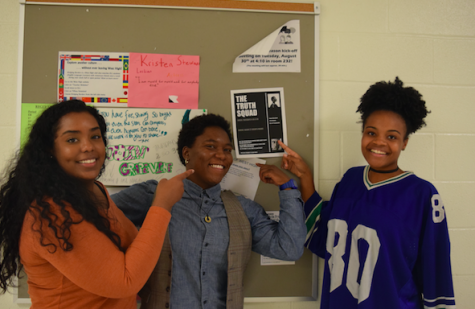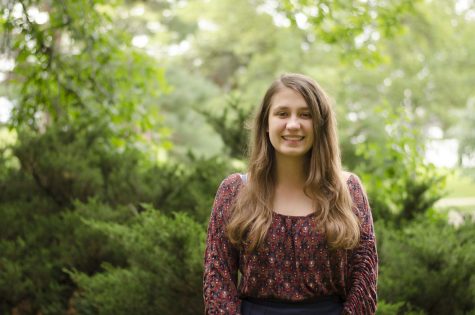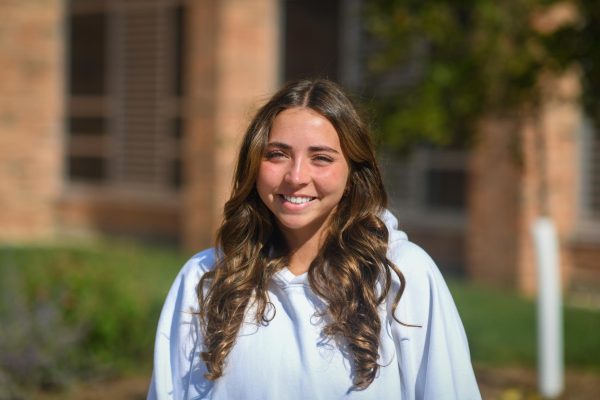Club connection: Truth Squad
West High’s Truth Squad tackles issues of cultural identity and social injustice.
September 15, 2016
“What is freedom of expression?” Jade Merriwether ’17 writes on the board. Because their topics often revolve around current events, this question is clearly derived from the controversy surrounding rising for the national anthem.
Merriwether is preparing to start a discussion for the Truth Squad. She didn’t start the club, but she’s been a member since the beginning.
“One of my friends introduced the club to me, and I just started going after he graduated,” she said. “I just liked how in depth we went with conversations about race and ethnicity and how that affects our lives now.”
The Truth Squad is a group started by former West paraeducator Chanelle Thomas, who now supervises the club. She also came up with the name.
“It was a book I read called Brainwashed by Tom Burrell, and at the end of the book he has a call to action,” Thomas said. “He referenced creating groups, and he mentioned ‘truth squad’ and I thought that was something that stuck.”
Thomas pitched the idea and got students to start attending regularly.
“I saw there was a need in the school, and I tried to fill it,” she said.
According to the club’s members, that need is being met. Merriwether finds comfort in being surrounded by people that understand her.
“I feel like there’s not really a space for us to do that, especially here at West, and here in Iowa,” Merriwether said. “It’s just really comforting to me to know that there are people around me dealing with some of the same things I am dealing with.”
However, the long term goal of the club is to learn more about race and racial justice. Each Monday, a question–or set of questions–is written on the board to be pondered and discussed.
Safeya Siddig ’18 believes altercations between police officers and African-American men have been influencing their recent discussion topics.
“I think a big one is police brutality of course and racial profiling,” Siddig said. “That’s one that we talk about often.”
As the interview continues, Merriwether adds to the board, “Does it have limitations? What are they?”
The question is related to Colin Kaepernick, and Siddig is eager to offer her opinion on the controversy.
“Personally, I agree with him because it’s not like he’s saying, ‘I don’t like America,’” she said. “He’s just saying, ‘I shouldn’t stand up and praise this place where my people are not being treated like everybody else, and not getting justice like everybody else, that we deserve.’ So he puts his fist up for black power.”
While lots of discussion topics are derived from the news, Thomas adds that, in addition to talking about current events, much of the conversation is directed at culture.
“Cultural identity is probably [a] big one,” she said. “It’s them coming and getting to know more about black culture or getting a sense of community within culture. We just talk about the experience of being black in America, and in this world. “
That focus on black experience and culture may be why it’s fairly homogenous; everyone involved is black, and most are female.
“I think the general perception is that they aren’t welcome in this space, and to me that’s not true,” Merriwether said. “I feel like people are intimidated when we share our experiences, especially [because] people of other races feel a sense of guilt when we talk about things that are going on. That’s something that has been holding people back. It’s always good to learn, even if you’re uncomfortable.”
Thomas agrees that students of other races could feel a little bit daunted by the content material being examined.
“We have tough discussions,” she said. “For anybody outside of the black race to come to a room full of black people where we talk about black things can be very intimidating. But we’ve had teachers stop by, had students stop by and join the conversation. We welcome those who come, but I know it can be challenging to come through the door.”
But as the purpose of the club is to educate, the best way for it to fulfill its purpose would be to attract and include a more racially and ethnically diverse population.
“I feel like we need to include other races,” Siddig said. “What we’re trying to do is teach and educate others… so they can know more about it.”
Merriwether encourages increased participation in the Truth Squad, especially by non-black students.
“The time is now to keep the conversation going,” she said. “And if you feel uncomfortable, I’m sorry. It’s going to keep getting uncomfortable until we decide that it’s an issue. I think this is a good place to start and hopefully finish this conversation.”






